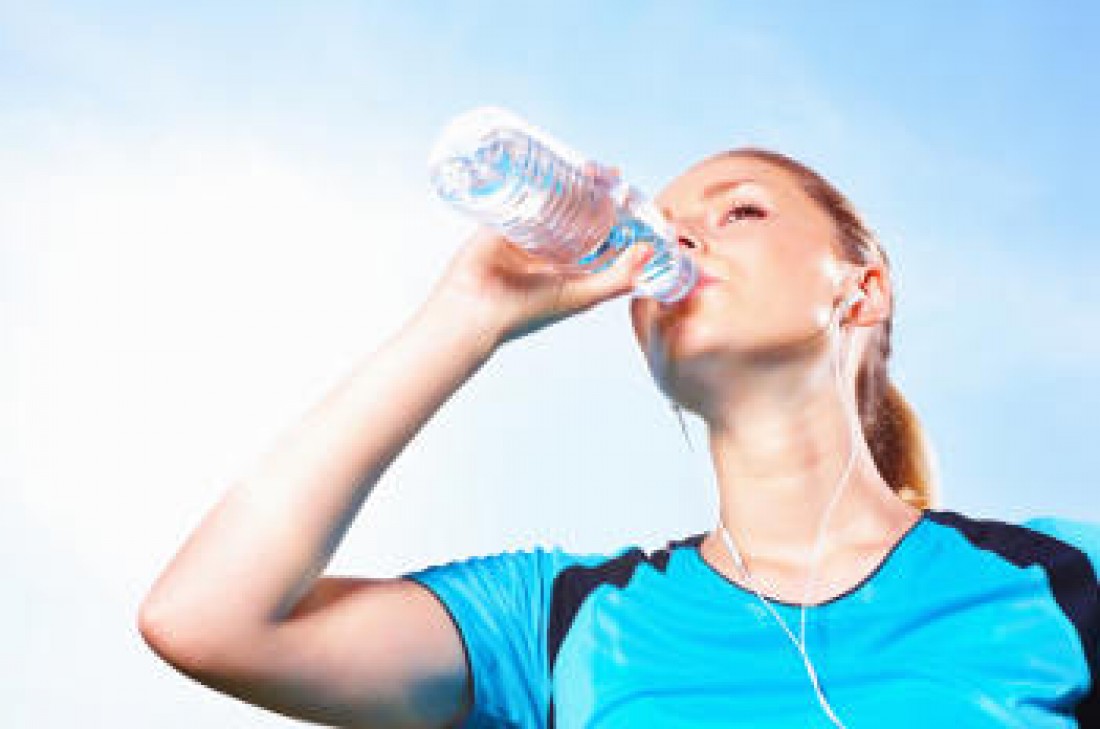Recently, in my Advanced Exercise Physiology class, I was given the assignment of writing a paper about the effectiveness of hydration on both the prevention of heat illnesses, as well as improvements in physical performance. As I went through the relevant literature, I quickly noticed that there seemed to be dozens – if not hundreds – of papers published about how hydration can prevent mild and severe heat illnesses, ranging from simple dehydration to heat exhaustion and heat stroke.
Finding information about the effects of optimal hydration on athletic and sports performance was a bit more difficult, but some pretty clear evidence does exist. For example, Walsh et. al. (1994) demonstrated the performance benefits associated with remaining fully hydrated during exercise. They had subjects cycle for one hour at 70% of VO2 peak before exercising to exhaustion at 90% of VO2 peak, a task that required about 6-10 minutes to complete. When the subjects were allowed to dehydrate by only 1.8% of their body weight, they lasted slightly more than six minutes before becoming fatigued. When they remained fully hydrated by ingesting fluid at regular intervals throughout the hour of steady-state cycling, they were able to cycle for almost 10 minutes, a large and significant improvement in performance.
Similar effects have been seen with studies done on competitive runners. Casa et. al. (2010) examined physiological and performance variables among trail distance runners when running in the heat. Their study measured these variables among 2 groups of elite trail distance runners during both a sub-maximal and maximal race trial in the heat. One group of runners was well hydrated, and the other was dehydrated, during both the sub-maximal and maximal trials. The results of the study demonstrated decreased body mass and body water loss, lower core body temperature, better running economy, and faster running times over time trials, in hydrated distance runners versus dehydrated distance runners. The researchers surmised that “even a small decrement in hydration status impaired physiologic function and performance while trail running in the heat.”
The “take-home” message for soccer coaches and fitness coaches is that proper hydration will not only prevent heat illness, but it will also allow players to maximize their physical performance. Improvements in running economy, as well as in aerobic and anaerobic endurance, should translate directly into better soccer performance on the pitch.
I’d love to hear your thoughts about this topic. Drop me a line here to get the converstion started.


Found this interesting blog post about hydration and fitness- personally, I feel better when I drink at least a quart or two (about two hours before) I exercise. I wonder if there are scientific studies done on cold-weather and hydration/dehydration effects? Might be worth looking into since the sciencebabez are from Alaska!
Reblogged this on sciencebabez and commented:
Found this interesting blog post about hydration and fitness- personally, I feel better when I drink at least a quart or two (about two hours before) I exercise. I wonder if there are scientific studies done on cold-weather and hydration/dehydration effects? Might be worth looking into since the sciencebabez are from Alaska!
I have not seen any studies on hydration in the cold, however, in the article I cited it was mentioned that “less water” is needed if the temperature does not exceed 18-20 degrees Celsius. I think you have it right – drink the amount that works for you..just check your body weight after training and if you lost less than 1 kilogram (less than 2 pounds) you should be fine!